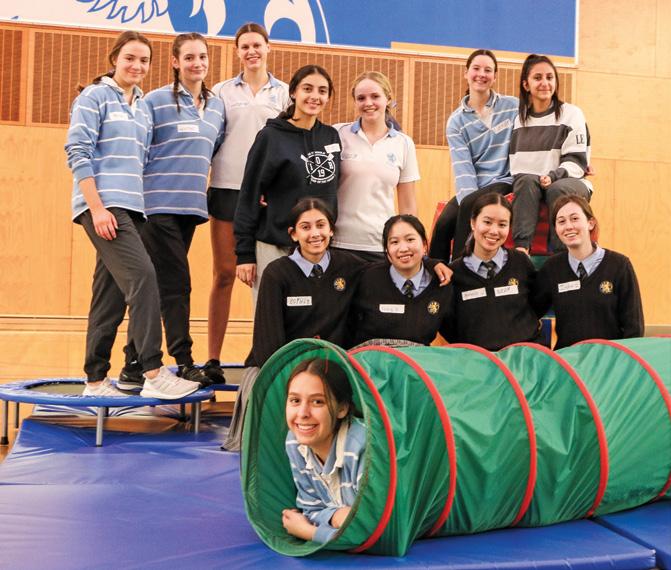
3 minute read
Fun in the Wilderness
FOSTER CARE PROGRAM
FUN IN THE WILDERNESS
Advertisement


Engaging in ‘learning that matters’ really does matter. A recent partnership with Anglicare SA to run a fun, after-school, activitybased program for foster children is a testament to the impact of highquality, ‘real-life’ learning.
The program captured the very essence of the Wilderness School Learning Framework to deliver ‘life-worthy learning’ for our girls. Learning that is likely to matter in the lives the girls are likely to lead (Perkins, 2014, p. 8). Emotional intelligence, or EQ according to Goleman (1995), is a strong predictor of success in life. Empathy or the capacity to ‘put yourself in their shoes’ is a critical component of EQ. When girls walk out of the School gates, we want them to be empathetic, compassionate young women who have been involved in experiences that broaden their worldview. We want them to have knowledge of social issues and know that actions do make a difference in striving for a just world. Offering the Gold Duke of Edinburgh Award is an integral part of this and is all about providing opportunities for personal growth. The service section of this award requires the girls to undertake a selfdriven service project for one hour a week over 12 months. To meet this requirement, our Year 11 students collaborated to set up ‘Fun in the Wilderness’, an after-school program for children in foster care.
This project has evolved through our newly formed connection with Anglicare SA. The girls have been passionate about providing this opportunity for these children and devoted their time to preparing for the after-school sessions, from planning and designing each session to writing risk assessments and booking the location.
They also worked with Emily Rozee from Anglicare SA who provided a valuable session on working with children who have experienced trauma. The nine-week program saw the foster children and their siblings participate in activities including pottery, gymnastics, music, drama and planting succulents to take home. Comments such as, “I want to be like you when I grow up”, highlight how much the program meant to these children.
The program also allowed foster carers to have some respite and connect while their children were engaged in the sessions. One foster carer, Kerri, remarked that it was a fantastic program for all involved. “It was a wonderful experience that all the children looked forward to each week and still talk about,” she said.
This program has been mutually beneficial. Our Year 11 girls commented that they have created meaningful relationships through the program and enjoyed connecting with their community. “Throughout the program, we grew to appreciate the meaningful connections we developed with the children and their families, gaining a deeper understanding of our community,” Eliza Corbin, Amolika Bhatia and Harriet Craig said. “Seeing their growth in confidence and interest towards the activities allowed us to realise the importance and value of spending time with others. We found that this was highly transferable to other relationships with a range of different people.
Witnessing the children form bonds with one another was extremely rewarding.

It has been especially insightful to see the work that the carers put into ensuring the best opportunities for their children. We are so grateful for this partnership between Anglicare SA and Wilderness, allowing us to have life changing impacts on members of our community while growing as individuals.”
High-quality, real-life learning experiences such as ‘Fun in the Wilderness’ provide deep connections that engage the heart. Our girls have been empowered by serving something greater than themselves. They have demonstrated their ability to create something meaningful to the community beyond the School, connecting to real-world issues. We have seen the girl’s empathy and social cultural awareness develop with this hands-on experience working with people from different backgrounds and cultures. As Nielsen (2013) states, “…if social concern and being something for others is synonymous with a definition of wellbeing and wisdom, it seems that the research is quite clear as to how we can live more wisely”.
Lauren Walker and Bess Smith Duke of Edinburgh Coordinators
References: • Goleman, D 1995, Emotional Intelligence:
Why It Can Matter More Than IQ, Bloomsburg
Publishing, London.
• Nielsen, T 2013, Giving: A key to solving our problems, viewed 25 June 2021, www. thomaswnielsen.net/giving-key-solvingproblems/.









